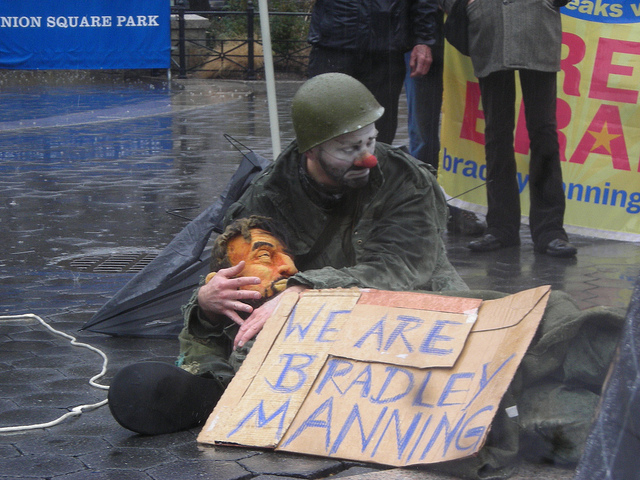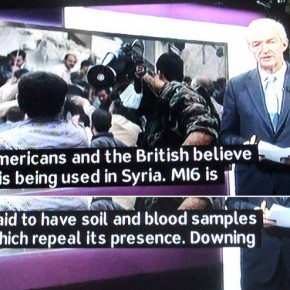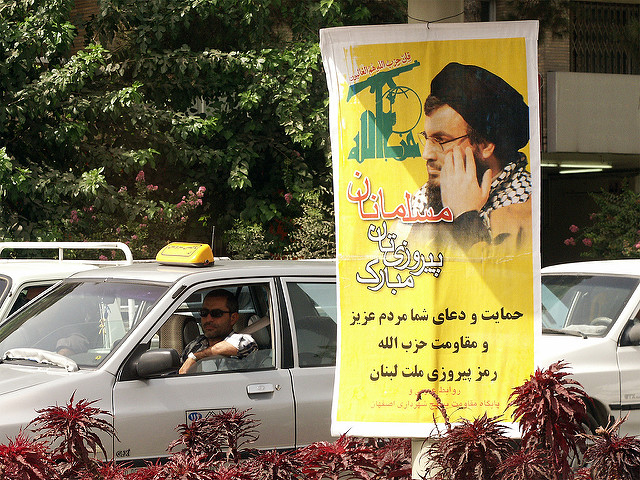We now know that it will be Chelsea, not Bradley, Manning who will be serving a 35-year sentence in military prison for daring to expose US war crimes in Iraq. That revelation has brought Manning back into the headlines, and overall, one has to be pleased with the reception.
Oh, there have been various examples of transphobia, most commonly in the form of referring to Chelsea Manning as “he,” but on the whole, the reporting and even the blogging have demonstrated again that we’ve come a long way on LGBT issues. The “T” in there is often the toughest one to push forward.
In less widely covered news on the same day, a 21-year old transgender woman, Islan Nettles, succumbed to wounds sustained in a savage beating on August 17. Nettles’ mistake? She and her friends walked past the wrong group of men in New York City. So, there is still a very long way to go.
The transgender community has had to fight a dual battle for a long time. Heterosexist norms rely heavily on rigid gender definitions, and this has created a very special sector of hate for transgender men and women. More deeply, by belying those gender definitions, transgender people shake what is, for many of us, one of the fundamental realities of existence we cling to when so much else is so subjective and malleable. Even when that doesn’t produce hate, it often produces discomfort. And so, the other side of that battle has been rejection in sectors of the Lesbian and Gay communities.
The issue can be complicated because questions of gender identity and sexual orientation often overlap, but they’re not the same. The complications have grown for many after various generations have at times embraced androgyny and gender-bending, both of which intersect sub-cultures—like hippie, punk and goth— which have also held wide appeal and bridged gaps between heterosexual and queer people. But in the mainstream, it often becomes a struggle.
In 2011, the National Center for Transgender Equality and the National Gay and Lesbian Task Force (NGLTF) jointly produced a report on discrimination against transgender people. The results were alarming, but hardly surprising. Transgender folks face intense discrimination in every regard. In the survey, 41% of respondents had attempted suicide. The rate for the US population in general is 1.6%.
One question the survey leaves unanswered is that of discrimination in the LGBT community itself, something NGLTF might want to look at more closely. I am reminded how, back in the early 90s, when the group organizing the New York City pride parade wanted to marginalize bisexuals (I was an activist with the New York Area Bisexual Network at the time,) they placed us with various transgendered groups in the parade. I found it wonderful, but the message of putting all the “marginal” groups together was not lost on any of us. Happily, from what I can see and have been told, things have changed dramatically in New York since then.
More recently, and more prominently, transgender equality and feminism have clashed in Michigan, where the annual Michigan Womyn’s Music Festival’s two-decade old rule against transgender women’s attendance has come under increasing attack. The Festival goes on each year, and, from all I’m told by a number of friends who attend it, the question of transgender attendance is increasing in prominence. From what I can tell, it is not threatening the Festival itself. That’s a good thing, as it is a unique, women-only space that needs to both thrive and finally open itself to all women.

Progress has been made. Since 2001, the official policy of the Festival has been not to question any attendee as to her gender, though the official policy of only “womyn-born womyn” being allowed in is still in place. Basically, that’s “don’t ask, don’t tell.” Not a great system for a largely lesbian festival to follow, I’d say.
I recognize, of course, that as a male, there may be issues here that I don’t fully get. But even the phrase the Festival uses, “womyn-born womyn,” reflects the depth of the problem. Most transgender women I’ve met (perhaps all, I didn’t ask every one) feel they were born women, and to suggest otherwise is deeply hurtful and a denial of both their identity and the difficulty of their personal experience. The Indigo Girls, who regularly perform at the Festival, and did so this year as well, issued a statement that ended with this: “Although we are playing the festival, we honor the current protest against MWMF and hope that it will help move the community towards change. Any money that we make playing the Festival will go towards Trans Activism. We will make a statement from stage at the Festival in support of Trans Inclusion. We have made it clear that this will be our last time at the Festival until MWMF shows visible and concrete signs of changing their intention. We have no animosity towards anyone in this case but see the deep and fearless legacy that MWMF has had during its existence and we honor that. We also honor the prayerfulness that has been a part of this struggle on both sides. This is not an easy path, so we empathize with all who struggle to make their decisions. We love Michigan Womyn’s Music Festival and hope for it’s (sic) continued presence and power in our lives.”
The Indigo Girls’ statement clearly empathizes with the discomfort some feel at transgender women being in male-free space. One can understand that, perhaps, but that makes it no more tolerable. These communities, in fact, have a particular responsibility to help other women who face terrible difficulties every day.
Chelsea Manning’s revelation had an interesting side effect in liberal media circles, which illustrates some of those difficulties. The Daily Beast, a major, mainstream/liberal news site, published an op-ed that, essentially, said that Manning might not have it so bad in prison and might even become the “queen bee,” by becoming the “wife” of some tough guy. While some of the responses did reflect a deep lack of understanding of prison life and culture, which the author, Mansfield Frazier, an ex-con, was trying to convey, it was still refreshing to see those commenters almost universally call the piece what it was—a transphobic, victim-blaming apology piece. My experience working with a community that included a lot of transgender men and women who had been incarcerated tells me that the experience that writer imagined is just that—an imagining. I won’t repeat some of the stories I’ve heard in this space, but I will point out that all too many of these stories ended with some sentiment like “it really wasn’t that much worse than it is outside.” I’d like to think things are better some twenty years later, and maybe they are. But these were people who, for reasons of gender identity, race and class were on the bottom rung of our society. And Islan Nettles’ fate suggests things are still bad there.
But the fact that a liberal outlet like The Daily Beast would print such a piece about Manning’s announcement shows us how little understanding there is of transgender issues. Some editor there thought this was an “inside view” of what Manning might face in prison. It’s actually not, since military and federal prisons are very different environments, but more than that, Frazier’s idealizing of transgender sexual slavery in prison would have seemed far less tolerable if it was simply about a man, gay or otherwise, in prison and being “owned” by a “Bubba,” as he put it. Such a piece would never have made it on to The Beast site.
Still, the comments on that story, like the increasing solidarity with transgender women in Michigan and the generally positive or at least neutral response to Chelsea Manning’s latest revelation all show that real progress has been made. And that’s hopeful. Because when we, as a culture, can embrace a fluid definition of so fundamental a thing as gender, we can open up possibilities for co-existence and diversity that mere “tolerance” cannot attain. For that, we still have a long way to go.
UPDATE: A friend who works at the Michigan Womyn’s Music Festival and who certainly knows better than I do, informs me that I have grossly understated the threat this issue poses to the future of the Festival, and in fact it does threaten the existence of MWMF itself, quite seriously. This is a real shame. I can only hope the issue is resolved and the Festival continues. It’s an important institution for many women and I have more than a few friends who have gone there and who still do. I must also hope that the resolution includes recognition of the need that all women have for that space. But if the Festival is undone by this, it is a loss for all concerned. There are no winners in such an outcome. Other than patriarchy, of course.
Photographs courtesy of Pamela Drew. Published under a Creative Commons license.





